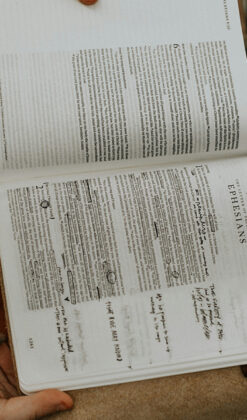There are a ton of books on LTBTQ related issues and many more coming out. I wanted to highlight a few recent ones that I’ve found helpful.
Tim Otto, Oriented to Faith: Transforming the Conflict over Gay Relationships (Cascade Books, 2014)
This book is outstanding. Like Ken Wilson and Andrew Marin, he doesn’t argue for or against gay relations, so this may make some people mad (on both sides of the debate). But what he does is introduce several other topics that people need to wrestle with in order to better understand and love those who are attracted to the same sex. Tim is theological informed, a great writer, and has personal

investment in the issue: He’s a gay Christian committed to celibacy. Most of all, he’s committed to Christ and Christ’s community. In fact, the question of “is it a sin” is somewhat irrelevant for Tim. He never really lands on either side of the question. Rather, Tim is committed to celibacy because this is the position that would best further the gospel in his community and best serve the body of believers that he’s a part of. (You’ll have to read the book for the details.) Imagine that. A Christian who cares more about the gospel, the mission, and fellow believers than about his own sexuality. It almost sounds like Tim has picked up a cross and started to carry it. It smells as if Tim is denying himself and laying down his life. It sure seems like Tim is considering the needs of others as more important than his own.
I think Tim might be a Christian.
This book really is a powerful and provocative book. It’ll challenge your thinking no mater which side of the debate you land.
Eve needs no introduction for those who are familiar with the Christian LGBT blogging community. She’s a brilliant writer and a sharp thinker. Eve is a Lesbian who converted to the Catholic faith and therefore she’s committed to celibacy. She doesn’t give a detailed biblical argument for why she’s committed to celibacy; she’s simply submitting to the teaching of the Church. But this book is not just about homosexuality. It’s a book about life, faith, alcoholism, community, and friendship. This is a book that’ll be hard to put down, especially for those of you who like witty prose and rich theological thinking. I’ve never met Eve, but I hope to some day. She seems like a beautiful human being who’s on an honest quest for God. And this book will give you personal insight into what it means to be zealous for Jesus and attracted to the same sex.
This book isn’t out yet, but I received an advanced copy and let me tell you: It’s a must read for every Christian. There are few Christian sources out there that accurately address questions about transgender and transsexual people, which is probably why Mark wrote this book. And it’s a perfect blend of academic depth and pastoral sensitivity. If you’re not familiar with the works of Mark Yarhouse, you need to be. Mark is theologically conservative yet driven by compassion and understanding. Plus: Mark has a doctorate in psychology and is the leading evangelical expert in LGBTQ issues.
This book is fairly academic. He goes through detailed studies about issues related to sexuality and gender, and he also examines various modern concerns in light of a biblical worldview. It’s not a light read, but it’s a necessary read for anyone who is looking for a solid resource about gender dysphoria, or trasngenderism.
This book also isn’t out yet, but I’m sure it’ll be a gem. Megan is an up and coming evangelical theologian who has tackled the neglected question of intersex people: formerly known as hermaphrodites. There are many people who are born with an ambiguous sex: a penis and a uterus, a vagina and a scrotum, or many other combinations. Are they male? Are they female? Or somewhere in between? And if they are somewhere in between, then what are we to make of this theologically? Are male and female the only sexes create by God, or is sexually more fluid? Genesis talks about land and sea, but surely there are rivers and lakes and marshes and swamps. Genesis talks about male and female, but could there be other variations in between?
Much to think about! And Megan has thought about all of this theologically. Like Yarhouse’s book, this one is going to be a bit more academic, but it’s going to spur your thinking and raise questions that you didn’t know existed.
We Christians need to think deeply and creatively about LGBTQ questions, because LGBTQ people are created in God’s image and therefore need to know that they are loved by their Creator.
Kevin DeYoung, What Does the Bible Really Teach About Homosexuality (Crossway 2015)
This book, too, is forthcoming. If you’re familiar with DeYoung, you probably either love him or hate him. But if you’re a Christian, you shouldn’t hate him, even if you don’t exactly love everything he says. I actually know very little about Kevin and have read no more than 2 paragraphs of anything he’s written. So any predication about this book will be nothing more than a guess.
What I do know is that there hasn’t been a good, non-scholarly, detailed look at what the Bible says about homosexuality from a conservative standpoint in years. And—for better or worse—this book is short. Only a 120 pages or so. My suspicion is that it’ll be a sort of a “diet Gagnon” treatment of the issues, but we’ll see. I’ve received an advanced copy and plan on posting a detailed review of the book on the day it’s published. So stay tuned.
At the end of the day, wherever you stand on the question of same-sex relations, it’s important to stay up to date on the latest stuff being written on the topic. Thsi list isn’t exhaustive by any stretch, but I hope you find it helpful as you navigate the diverse and turbulent waters of the discussion.











